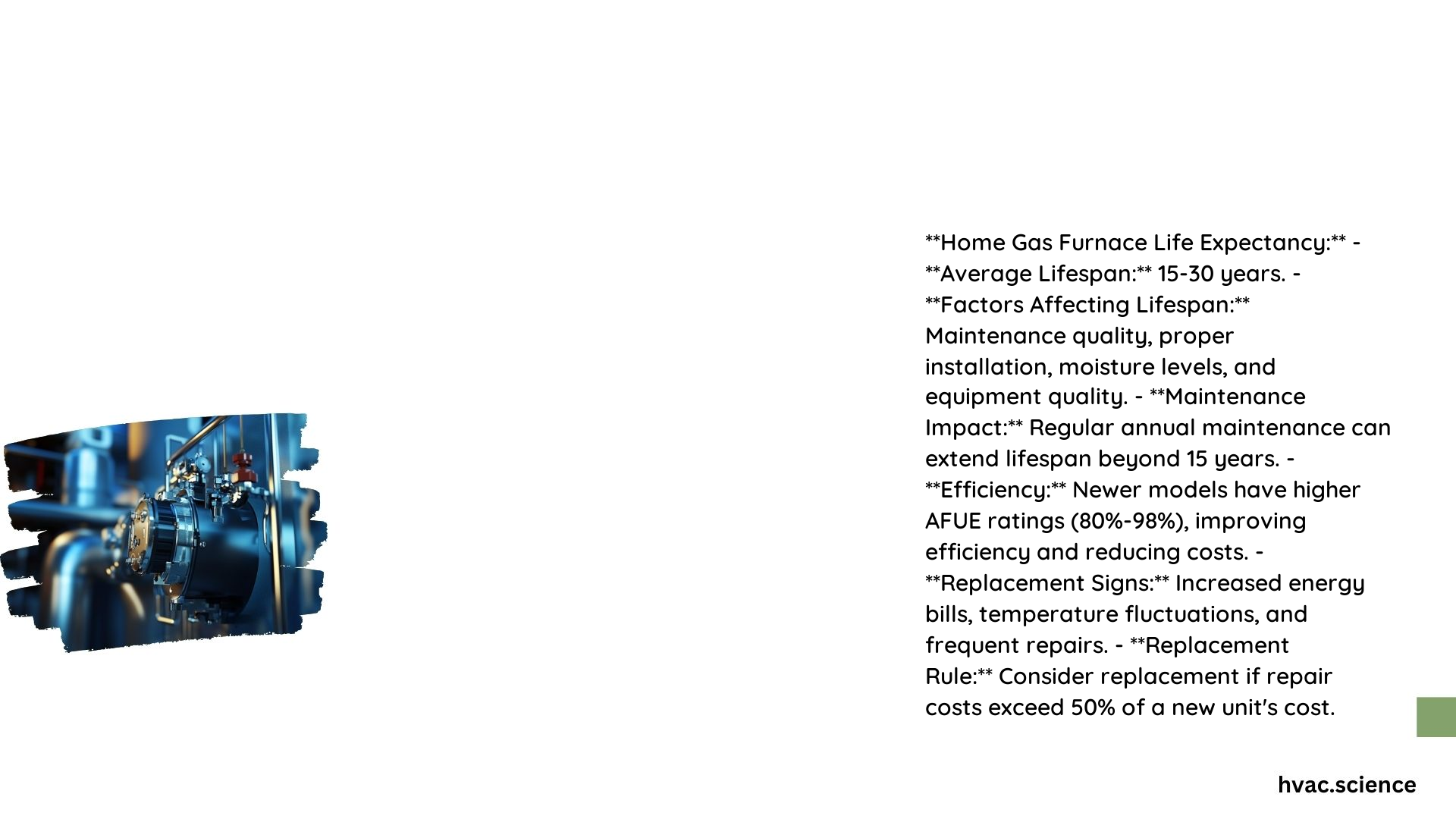The average life expectancy of a home gas furnace is a crucial consideration for homeowners when it comes to maintaining their heating systems. Understanding the factors that influence a furnace’s lifespan can help homeowners make informed decisions about their home’s heating needs.
What is the Average Life Expectancy of a Home Gas Furnace?
The typical range for the life expectancy of a home gas furnace is 15 to 30 years. While some furnaces may last beyond 30 years, this is less common, and the majority of gas furnaces will need replacement within the 15 to 30-year timeframe.
Factors Influencing the Lifespan of a Home Gas Furnace
Several factors can impact the lifespan of a gas furnace, including:
-
Installation Quality: Proper installation is crucial, as improper installation can reduce the rated efficiency by up to 30% and lead to premature breakdowns.
-
Maintenance: Regular maintenance by a licensed HVAC technician, including cleaning and inspecting the furnace, can significantly extend its life.
-
Usage Patterns: Keeping the home cooler during winter and using consistent temperature settings can reduce strain on the system.
-
Environmental Conditions: Proper ventilation and moisture control are important to prevent rust and other damage.
-
Furnace Type and Quality: Higher-quality furnaces with better materials and higher efficiency ratings can last longer.
How to Extend the Life of a Home Gas Furnace
Homeowners can take the following steps to help extend the life of their gas furnace:
-
Schedule Regular Maintenance: Arrange for annual furnace maintenance with a licensed HVAC technician to ensure the system is properly cleaned and inspected.
-
Practice Proper Usage: Maintain consistent temperatures and use a programmable thermostat to optimize heating and cooling.
-
Replace Filters Regularly: Replace dirty filters to ensure proper airflow and efficiency.
-
Monitor and Address Issues: Inspect the furnace for signs of aging, such as increased energy bills or strange noises, and address any issues promptly.
-
Control Environmental Factors: Ensure proper ventilation and control moisture levels to prevent rust and other damage.
HVAC Technical Details
-
Efficiency Ratings: Look for furnaces with high AFUE (Annual Fuel Utilization Efficiency) ratings, typically 80% or higher, for better efficiency and longer lifespan.
-
Material Specifications: Higher-quality furnaces are made with better materials, such as high-quality metal, that can withstand the stress of cycling on and off.
-
Common Failure Points: Heat exchangers, burners, and igniters are common failure points, and regular maintenance can help identify and address these issues before they become major problems.
By understanding the average life expectancy of a home gas furnace and the factors that influence its lifespan, homeowners can make informed decisions about their heating system and take proactive steps to extend its life.
References:
1. Griffith Energy Services: “My Furnace Is 30 Years Old: How Long Do Gas Furnaces Last?”
2. Valley Service: “How Long Does a Furnace Last?”
3. Bob Vila: “Solved How Long Does A Furnace Last?”.

